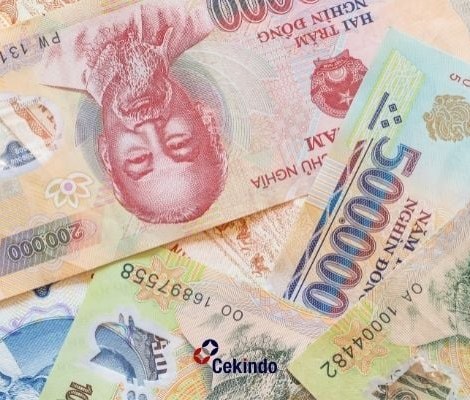Vietnamese banks are increasingly appealing to foreign investors, especially since they started looking to raise their registered capital for requirements on Capital Adequacy Ratio (CAR) under Basel II standards, an accord issued by the Basel Committee on Banking Supervision. This article deals with the aspects of increasing attraction for foreign investment in the Vietnamese banking industry.
Interested in Investing in Vietnam? Check Out Our Market Entry Business Consulting Services
Vietnam’s Banking Industry Outlook 2021
Vietnam’s economy has mostly escaped the covid-19 pandemic unharmed. Increased consumption, expanding middle class population and a trade-driven economy, has set the stage for Vietnam’s economy to grow at 7.07% in 2019. Commercial banks, consumer finance firms, fintech/payment service companies, and insurance providers—the constituents of the financial institution group (FIG) sector—remain at the vanguard for fueling growth in the economy.
As such, M&A (Mergers and Acquisitions) activity in the FIG sector is expected to be strong this year. For instance, under Basel II standards of Circular 22, now Vietnamese commercial banks must declare capital adequacy and other regulatory ratios to the State Bank of Vietnam. This severe Basel II compliance will keep driving Vietnam’s commercial banks’ unappeasable quest for capital sources from foreign investments.
Vietnam Banks Remain Attractive Options For Foreign Investors
Given Vietnam’s long-term economic prospects, the market anticipates that more banks would increase registered capital by issuing shares to strategic investors through private placement.
Military Bank (MB Bank), for example, lifted its foreign ownership restriction from 22.9% to 23%. The decision was made after the bank issued over 362 million shares to pay the dividends and boost its charter capital to approximately VND27.98 trillion (US$1.2 billion). Falling in the footsteps, a number of banks, including VIB, VP Bank, Techcombank, and ACB, would boost foreign ownership as part of Vietnam’s EU-Vietnam Free Trade Agreement commitments (EVFTA).
RELATED: The Remarkable Rise of the Fintech Industry in Vietnam
Furthermore, the Vietnamese government would allow European financial firms to purchase up to 49% of two commercial banks, up from the present threshold of 30%, for a period of five years after the EVFTA takes effect.
Experts say that with foreign investment, Vietnamese banks might accelerate the digitization and e-payment processes, which experts say are still underserved by the majority of institutions. The government continues to make it easier for small and medium-sized banks to go public, which might help them attract more investment from domestic and international sources.
Investment Opportunities in Commercial Banks for Foreign Investors in 2021
Following are the ways in which investing in commercial banks as a foreign investor can be highly lucrative:
- New Equity: As banks mostly depend on the common equity (Tier-1 Capital) for Basel II compliance, prospects for direct equity subscribers will remain substantial for foreign investment.
- Tier 2 Capital Bonds: Bonds may either be structured as convertible tools or long-term subordinated debt for the purposes of qualifying under Basel II as Tier 2 capital. The convertible part offers investors capital upside by means of the conversion option and debt instrument protection. In recent years, Tier 2 Capital Instruments was observed to be an appealing investment choice in Vietnam for financial investors, and development financing institutions.
- Secondary Share Investment Opportunities: Although investment prospects of secondary shares often fail to change the capital level and compliance with banks’ regulatory ratios, vital opportunities can arise as a result of foreign policy investors seeking to revamp their global strategy.
In conclusion, as more banks become publicly listed, the issue of obtaining regulatory approval for foreign investments and divestments, as well as strict foreign ownership restrictions that cannot be exceeded, remains a time-consuming and document-intensive procedure. Because of this, it is best to have a team of lawyers, financial consultants, and brokers collaborate closely to ensure that the transaction goes successfully.
How Can Cekindo Help?
For foreign investors investing in Vietnam’s Banking Industry for lucrative returns, they must be aware of its hectic and document-intensive procedure. Cekindo, with its comprehensive financing services, can help them make a hassle-free investment with the country’s finest lawyers, financial consultants, and brokers on the team to help them every step of the way.
